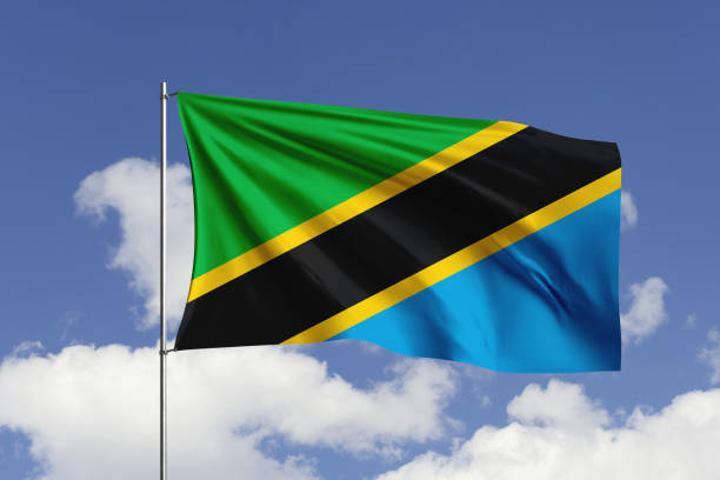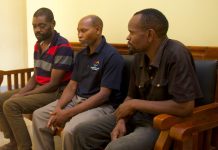Africa-Press – Tanzania. THE weeks following Tanzania’s October 29 election have produced a wave of foreign reporting that paints the country in stark, even foreboding colours.
Major international outlets, including The Washington Post and The Wall Street Journal, published lengthy accounts alleging widespread killings, abductions and political repression.
The stories rely heavily on anonymous testimonies, whispered accounts of “missing bodies,” and numerical estimates that vary wildly depending on who is speaking.
It all gives the impression of a nation suddenly unravelling, the sort of imagery the world has become accustomed to seeing from Rwanda in 1994, Burundi in 2015, or Mozambique’s Cabo Delgado in 2020.
And yet, when you speak to Tanzanians in markets, hospitals, churches, or local ward meetings, the tone is very different. There is anxiety, yes. Confusion, certainly. But there is also a quiet insistence on normalcy, a refusal to let the country be narrated entirely from abroad.
You hear people say, “Haya mambo yapite,” let these things pass, not because they are indifferent, but because they believe that a nation survives through its ability to de-escalate, not through the multiplication of panic.
That’s where the tension lies: foreign reporting with its dramatic cadence, and local reality with its instinct for calm.
The stories from abroad describe men in civilian clothes roaming the streets with weapons, morgues overflowing, families fleeing into the night.
Some of these accounts may well stem from genuine fear experienced by ordinary people, and fear is never fictional.
But it is also clear that several details have been repeated in a way that sounds more like momentum than verification.
When an article reports that “as many as 1,000 people may have been killed” but quickly admits that no independent confirmation exists, the narrative begins to feel stretched.
You start hearing echoes of old misunderstandings, the kind that once misrepresented Burundi’s internal strife, or the thatched-hut simplifications outsiders applied to Mozambique’s insurgency, where complexity was too often replaced with clichés about “failed states.”
There is no denying that Tanzania went through a turbulent election season. Any political process touching on power, identity, and national direction carries emotional weight.
But the foreign stories read as if someone is peering into Tanzania through a narrow crack in the door, interpreting shadows as shapes.
Washington-based editors can stitch anonymous testimonies into gripping stories, but that doesn’t mean those stories reflect the full reality on the ground.
Even well-meaning journalism can slip into the adrenaline trap, the assumption that the most dramatic version of events is automatically the most truthful.
After reading enough of these reports, a pattern emerges: “activists in hiding,” unnamed witnesses, relatives sending messages through WhatsApp.
Anonymity has its place in tense moments, but when it becomes the entire skeleton of a narrative, the picture inevitably starts to shake. That wobble feels familiar.
During Rwanda’s early90s unrest, allegations often travelled faster than verification, and the rush to interpret only deepened existing wounds. Many foreign observers later admitted that their urgency to explain the crisis had contributed to the confusion.
Tanzania deserves better than that, neither romanticised nor exaggerated, simply reported with accuracy.
This is why some of the claims circulating now, mass graves across several regions, security agencies acting like rogue militias, hospitals supposedly overflowing, need scrutiny. Weeks after those allegations appeared, they remain unverified.
Meanwhile, healthcare workers in Dar es Salaam describe something far more nuanced: yes, scattered injuries and tense moments, but nothing close to the apocalyptic scenes painted abroad.
These are not government insiders; they’re ordinary nurses and clinicians who want the truth handled with care. Regional commentary has not helped.
Kenyan, Ugandan, Rwandan, and Zambian social media spaces quickly transformed into loudspeakers of certainty, declaring that “Tanzania is next.”
A Kenyan commentator known mainly for Nairobi political jokes suddenly recast himself as a conflict analyst, reposting shaky, unverified clips with sweeping conclusions. Nonetheless, familiarity with instability does not automatically produce clarity.
As Burundian scholar Léonce Ngendakumana warned, trauma sharpens vigilance but can just as easily produce overreaction. In moments like this, Tanzania doesn’t need amplified panic; it needs sober reporting grounded in verification.
People on the ground already understand the complexity of what they are living through. What they’re asking for, quietly, firmly, is that the world narrate their reality with responsibility, not with spectacle.
And truly, something about this regional eagerness to diagnose Tanzania feels strangely competitive, as though each country wants to claim expertise in recognising instability, expertise built on its own painful histories.
Yet dragging Tanzania into the scripts of Rwanda, Mozambique, or Burundi is not a neutral act. It risks amplifying disturbance rather than calming it. These comparisons, thrown around so casually online, can inflame rather than inform.
Healing requires calm, not echoes of other nations’ fears. That is why President Samia Suluhu Hassan’s recent speech opening the 13th Parliament stood out. Whatever one thinks of her politics, the shift in tone was unmistakable.
After weeks of tension, she sounded less like a leader tightening her grip and more like one deliberately choosing deescalation.
She stressed reconciliation, the need to let legal institutions do their work without vendetta, and the importance of resisting the impulse to turn political disagreements into international courtroom battles.
“Tanzania cannot be built by injuring itself,” she said, a line that quietly circulated among Members of Parliament and civil servants afterward.
It carried a simple but powerful reminder: justice driven by vengeance rarely heals; it deepens fractures.
And yet, foreign reporting on the post-election period seemed determined to paint a darker, more chaotic picture.
Some outlets published allegations against Tanzanian law enforcers with alarming confidence, claims of mass disappearances, widespread torture, and entire neighbourhoods under siege.
But when local journalists and community leaders tried to verify these reports, many details dissolved on contact. Locations didn’t match.
Timelines clashed. Videos supposedly filmed “yesterday” were traced to entirely different years or countries. Still, the initial headlines had already done their work.
This is the trouble with crisis reporting from afar: once the dramatic version takes off, the corrections rarely travel as fast.
And when the subject is law enforcement, a field already viewed with suspicion across the continent, stories can snowball into global narratives before facts have even surfaced.
Critiquing these reports is not an attempt to shield Tanzanian authorities from scrutiny. Genuine grievances must be taken seriously.
But scrutiny is not the same as speculation. Allegations need verification, especially when they carry the power to shape international perception and domestic stability.
On the ground, the mood is different from the frenzy portrayed online. People want answers, yes, but they also want stability restored without tearing the country apart.
In Tanga, one elder put it simply during a ward meeting: today’s anger must not ruin tomorrow. That sentiment captures a broader truth: most Tanzanians are not interested in playing out their neighbours’ nightmares.
They want clarity, accountability, and the chance to settle back into normalcy without carrying labels imposed from outside.
The aftermath of this election reminds us that East Africa’s peace is delicate everywhere, not just in Tanzania. A rush to condemn, sensationalise, or frame every dispute in the language of past regional atrocities helps no one.
What helps is patience, sobriety, and a commitment to letting verified facts, not anxious guesses, guide the narrative. Tanzania is not flawless.
But it is also not a blank screen for others to project their fears onto. President Samia’s calls for calm, unity, and restraint mark a starting point, a choice to heal rather than escalate.
Foreign reporting can contribute to accountability, but only if it respects accuracy. Tanzanians understand their wounds and their resilience.
What they ask, quietly but firmly, is that the world allow them room to heal without turning their struggle into another global spectacle.
Source: Daily News – Tanzania Standard Newspapers
For More News And Analysis About Tanzania Follow Africa-Press







